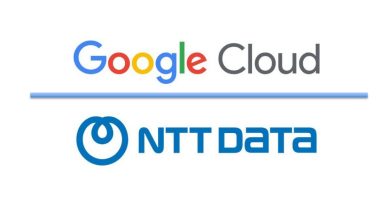Catalysing a Digital Revolution in Malaysia: A Path to an Innovative Future

By Sharina Hamdan, Country Manager and Head of Network Infrastructure Sales at Nokia Malaysia
Malaysia has taken another bold step toward digital leadership with the recent launch of the National AI Office (NAIO) by the Ministry of Digital. This initiative is a cornerstone of Malaysia’s broader strategy to accelerate AI adoption and position the nation as a key player in the global digital economy. The move signals the government’s commitment to embracing cutting-edge technologies that can transform public services, businesses, and industries.
Indeed, the report by GlobalData Malaysia – Enterprise ICT Country Intelligence Report November 2024, highlights the enabling role played by government’s policies supporting digital transformation, advancing 5G network rollouts, and increase in R&D spending and innovation.
We’re pleased to note that these initiatives includes digitalisation in the public sector; boosting economic competitiveness through digitalisation; enabling digital infrastructure; building agile and competent digital talent; creating an inclusive digital society; and building a trusted and secure digital environment.
Connectivity Challenges
However, as an archipelagic nation Malaysia faces connectivity challenges that hinder the full realisation of its digital potential. Its rural geography makes it challenging to build the necessary infrastructure for seamless connectivity.
On top of that, we know that the demand for reliable and fast internet connectivity continues to grow, driven by an increasingly digital economy. Malaysia’s digital economy aims to contribute at least 25% to GDP by 2025, according to government reports. This underscores the importance of scaling network infrastructure in supporting economic development.
In April 2024, the Malaysia Internet Exchange (MyIX), an initiative under the Malaysian Communications Multimedia Commission (MCMC), reported a 20% year-on-year growth in internet bandwidth demand, peaking at 2.311 Tbps in 2023, up from 1.938 Tbps in 2022. This is the highest level recorded since its establishment in 2006 and is continuing to grow. This thirst for connectivity has spurred the government’s initiatives to expand digital infrastructure across the country to further boost the market. This includes special focus on fibre-broadband technology with its superior speed, capacity and scalability.
As fast fixed-broadband subscriptions will continue to increase, comprehensive fixed network platforms, such as Nokia’s Lightspan and Altiplano Access Controller, are instrumental in overcoming our unique challenges. Designed to support a range of next-generation Passive Optical LAN (PON) technologies, from 10/25/50G to 100G, Nokia’s Lightspan platform offers CSPs the choice and flexibility to optimise their network based on their own technical and business needs. Altiplano opens up marketplace solutions that improve operational efficiency through automation and introduces new value-added applications, ensuring both urban and rural areas can benefit from high-speed and high-quality internet services.
Security in the Quantum Era
Another challenge is the emerging quantum digital age, which has prioritised the importance of cybersecurity. Quantum computing holds immense potential for breakthroughs in areas such as artificial intelligence and encryption.
However, it poses a significant threat to conventional cryptographic systems. Countering this, quantum-safe networks (QSN) have emerged as a critical solution for safeguarding sensitive data with the coming of Q-Day. With studies predicting that Q-Day may arrive sooner than expected, being future-ready includes working with trusted technology partners to ensure digital robustness and resilience.
Incidentally, we are in the vanguard of QSN technology, offering advanced cryptographic solutions that are resistant to the immense computational power of quantum computers. These networks incorporate quantum-resistant encryption techniques, providing an unparalleled level of protection against future cyberattacks.
Nokia allows customers to realise the full potential of digital with trusted performance across all network domains where we deliver resilient, superior performance across all critical parts of the network, built on high standards of security, sustainability and ethics. We help customers mitigate threats across untrusted networks, securing critical communications for governments, businesses, and individuals alike.
Backbone of Digital Transformation
At the heart of any successful digital transformation are data centres. As Malaysia positions itself as a key interconnectivity hub in the Asia-Pacific (APAC) region, investments in data centre infrastructure focused in the state of Johor have surged with demand continuing to grow due to the rise of e-commerce, cloud computing, and 5G connectivity.
The DCBytes Global Data Centre Index 2024 report said Johor has 1.6 gigawatts of total data centre supply, including projects under construction, committed to or in the early stages of planning. Data centre capacity is measured by the amount of electricity it consumes.
It is projected that if all planned capacity comes online across Asia, Malaysia will emerge as a data centre powerhouse, according to DCBytes. This expansion will play a critical role in supporting the country’s digital economy while positioning it as a major hyperscale data centre hub in the APAC region.
Nokia’s Data Centre Fabric solution can help organisations quickly and efficiently scale their data centre networks to meet evolving demands, while optimising costs and enhancing operational efficiency.
In addition, Nokia is partnering with Telekom Malaysia to build a new Dense Wavelength Division Multiplexing (DWDM) network to support the growing demand for bandwidth in Malaysia due to data centre expansion and the increasing needs of hyperscalers and OTT providers. This network will enhance data traffic management and connectivity between Malaysia, Thailand, and Singapore. Nokia’s DWDM solution will enable TM to efficiently handle the significant increase in data traffic and meet the growing demand for cloud-based services.
Indeed, as a global leader in network innovation, Nokia stands as a vital partner in Malaysia’s AI and digital acceleration journey. By providing advanced AI-driven solutions and scalable network infrastructure, Nokia is empowering the nation to realise its ambitions of becoming a regional digital powerhouse. Looking ahead, with enterprises, CSPs, and industry stakeholders collaborating to achieve common goals Malaysia is poised to unlock the full potential of its digital revolution —building an innovative future where connectivity drives economic growth, social inclusion, and national progress.




